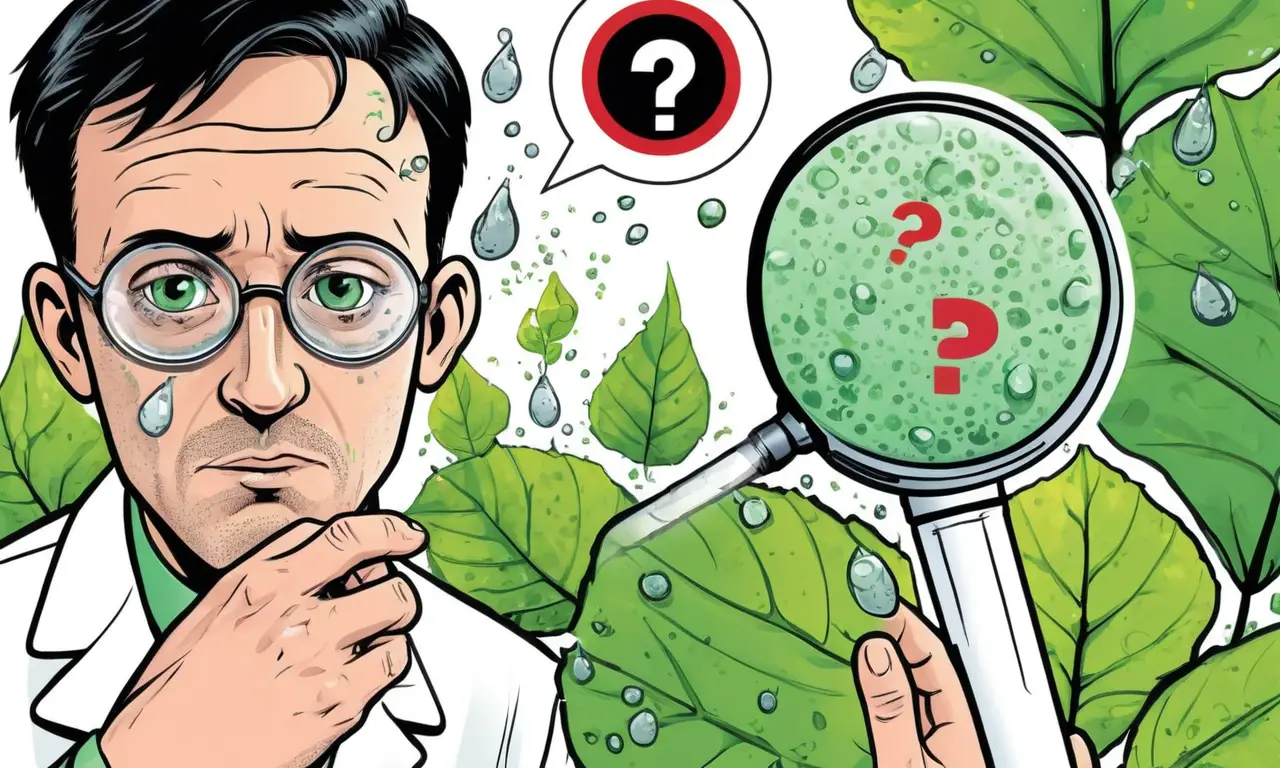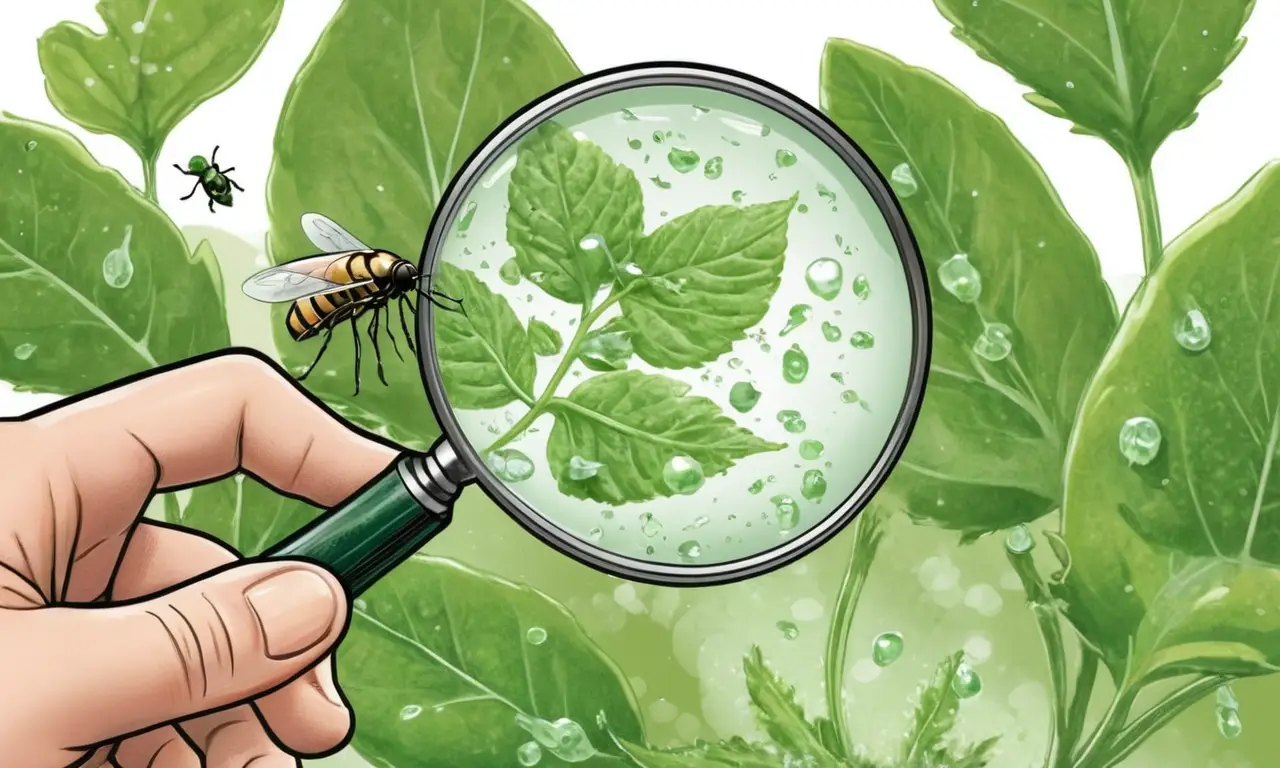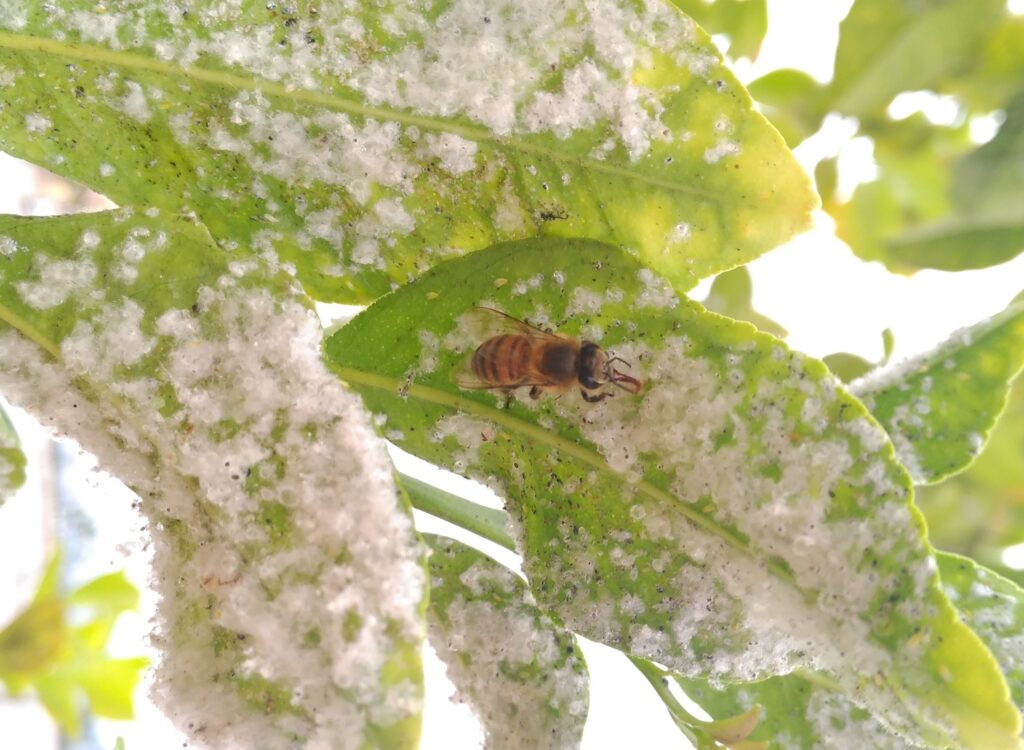Aphids are tiny insects that feed on plant sap, extracting nutrients and leaving behind a sticky residue known as honeydew. This sugary substance often appears on leaves, stems, and surrounding surfaces, raising questions about its potential harm to humans. While honeydew might seem concerning, understanding its nature and effects can alleviate any worries.
This article delves into the characteristics of aphid honeydew, explores its potential impact on human health, and examines its influence on plants and surfaces. We’ll also discuss effective strategies for managing aphid infestations and minimizing honeydew production.
What is Aphid Honeydew?
Aphid honeydew is a viscous, clear or pale-yellow liquid secreted by aphids as a byproduct of their feeding process. When aphids consume plant sap, they extract excess sugars that are expelled as honeydew. This sugary substance serves as a food source for other insects like ants and can contribute to the growth of sooty mold on plants and surfaces.
Honeydew’s consistency varies depending on factors such as aphid species, plant host, and environmental conditions. It can range from a thin syrup to a thick, sticky substance that adheres readily to surfaces. The presence of honeydew often indicates a significant aphid infestation, as large colonies produce substantial amounts of this sugary residue.
Honeydew Composition
Honeydew primarily consists of sugars like sucrose, glucose, and fructose, along with amino acids, vitamins, and minerals. These components make it an attractive food source for various insects, particularly ants, which actively cultivate aphids for honeydew production.
Is Aphid Honeydew Harmful to Humans?

Generally, is aphid honeydew harmful to humans? No. While honeydew can be sticky and unpleasant to touch, it does not pose any direct health risks when handled or ingested in small amounts. The sugars present in honeydew are readily digestible by humans and unlikely to cause adverse reactions.
However, large accumulations of honeydew can create unsanitary conditions and attract other insects that may carry diseases. It’s important to maintain good hygiene practices and avoid contact with excessive honeydew buildup.
Health Risks of Honeydew Consumption
Consuming significant quantities of honeydew is unlikely to pose any serious health risks to humans. The sugars in honeydew are similar to those found in other common foods like fruits and honey. However, excessive consumption of any sugary substance can contribute to weight gain and dental problems.
It’s important to note that honeydew may contain trace amounts of plant toxins or pesticides depending on the environment where aphids are feeding. While these levels are generally considered safe for humans, individuals with sensitivities or allergies should exercise caution.
Effects of Honeydew on Plants and Surfaces

While is aphid honeydew harmful to humans? No, it can negatively impact plants and surfaces. The sticky nature of honeydew promotes the growth of sooty mold, a black fungus that thrives on sugary residues. Sooty mold can block sunlight from reaching plant leaves, hindering photosynthesis and reducing plant vigor.
Honeydew also attracts ants and other insects, which can further damage plants by feeding on foliage or transmitting diseases. On surfaces like cars, furniture, and outdoor equipment, honeydew can leave unsightly stains and attract pests.
Managing Aphid Infestations
Effectively managing aphid infestations is crucial for minimizing honeydew production and protecting plants from damage. Several strategies can be employed to control aphids:
Natural Control Methods
- Encourage beneficial insects: Ladybugs, lacewings, and parasitic wasps are natural predators of aphids and can help keep populations in check. Planting flowers that attract these beneficial insects can promote their presence in your garden.
- Use insecticidal soap or neem oil: These organic solutions can effectively kill aphids on contact. Apply them directly to infested plants, following the instructions carefully.
Chemical Control Methods
- Insecticides: For severe infestations, chemical insecticides may be necessary. Choose products specifically labeled for aphid control and follow all safety precautions.
Conclusion
Is aphid honeydew harmful to humans? No, it generally poses no direct health risks when handled or ingested in small amounts. However, large accumulations of honeydew can attract pests, promote sooty mold growth, and create unsanitary conditions. Managing aphid infestations through natural or chemical control methods is essential for minimizing honeydew production and protecting plants from damage. By understanding the nature of aphid honeydew and implementing effective management strategies, you can maintain a healthy and thriving garden environment.



